![]() Every year, GameCola holds our own annual year-end awards, paying tribute to the best (and worst) games of that year. Past award winners include games like Portal 2, BioShock, and, uh… .hack. (That was a slow year.) We’ve been doing it for the past ten years now, from when we used to print up actual, physical ballots and vote on them in the Shawnee High School cafeteria, to now, when Paul basically just makes it all up we do it through the magic of e-mail.
Every year, GameCola holds our own annual year-end awards, paying tribute to the best (and worst) games of that year. Past award winners include games like Portal 2, BioShock, and, uh… .hack. (That was a slow year.) We’ve been doing it for the past ten years now, from when we used to print up actual, physical ballots and vote on them in the Shawnee High School cafeteria, to now, when Paul basically just makes it all up we do it through the magic of e-mail.
This year, we wanted to pay tribute to that tribute. In addition to the 2012 GameCola Videogame Awards (which you should look for later this month), we’re holding our first ever End-of-Decade Awards. We went over all of our award winners of the past ten years, from Kingdom Hearts to Heavy Rain to Boktai: The Sun is in Your Hand, and we voted on which of those winners were the ultimate winners. We also made up a few bonus categories just for this article, like “Best Console” and “Best New Series.”
Without further ado, here are the only games from The GameCola Era that you even need to bother playing.
Best Console Game of the Decade
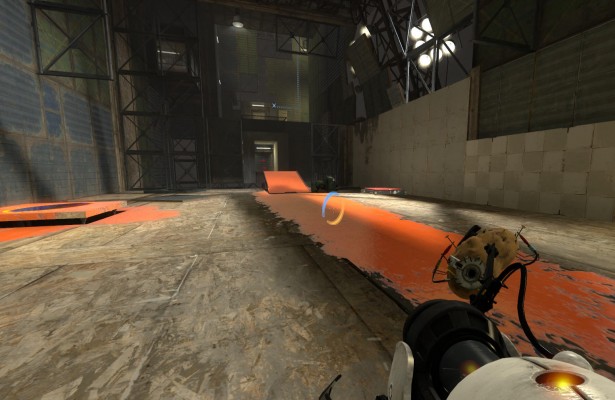
Portal 2 (2011)
Kate Jay: The original Portal made its mark on the gaming world with its witty dialogue, innovative concept, and fast-paced gameplay. Fans asked for a sequel, and Valve gave us everything we asked for and more: Portal 2 took that theme and ran with it, releasing with a fully-fledged story with actual character development, backstory, and, of course, more snarkiness. Playing through Portal 2, we learn more about the history of Aperture Science and the men and women who made it what is was (before GLaDOS killed everyone, that is). Valve added new Aperture Products, including three types of gel, robots for the multiplayer levels, and defective personality cores. To add more frosting on this delicious, theoretical cake, Valve also provided players with plenty of free—yes, FREE—downloadable content for the multiplayer and single-player campaigns. Portal 2 is clever, quirky, and charming, and it most definitely takes the cake.
Runner-up: LittleBigPlanet (2008)
Honorable Mentions: Shadow of the Colossus (2005), Kingdom Hearts (2002)
Best Handheld Game of the Decade
Phoenix Wright: Ace Attorney: Trials and Tribulations (2007)
Michael Gray: When videogames get together and have parties, the handheld games are always forced to sit by themselves in the corner. They want to sit at the adults table, but they’re not allowed to, because the best they have to offer are scaled-down ports and glorified minigames like Brain Age and Nintendogs.
Phoenix Wright is a diamond in the rough sea of DS games. Featuring a spiky-haired lawyer who solves murder mysteries, this visual novel/adventure series has won the hearts of many fans with its charm, humor and dramatic finger pointing. It’s a definite change of pace from the endless selection of licensed handheld games that are sold at your local Target.
The third and final game in the Phoenix Wright trilogy is the best the series has to offer. It has the most comprehensive plotline of all the games. Fan favorite characters get brought for one final appearance, much to everyone’s delight. And there’s romance. Oh, is there romance. Also, there’s a Canadian Judge. It’s hard to think of any way they could improve upon this game, the high point of a refreshingly unique series.
Runners-up: WarioWare Inc.: Mega MicroGame$ (2003), Ghost Trick: Phantom Detective (2011)
Best Licensed Game of the Decade
Scott Pilgrim vs. The World: The Game (2010)
Matt Jonas (reprinted from 2010): How can this be the same Ubisoft that slaughtered Turtles in Time?
Scott Pilgrim vs. The World: The Game is based on the motion picture directed by Edgar Wright, and the comic book series by Bryan Lee O’ Malley. It is a series heavily influenced by videogames. To coincide with the theatrical release, Ubisoft produced this fantastic Xbox Live and PlayStation Network title, which combines the gameplay of Final Fight and River City Ransom in a way that many others should learn from. Filled to the brim with references to classic videogames, Scott Pilgrim may be forgiven for its freezing issues, because it stays true to both the movie adaptation and the comic, sharing the greatest elements of both.
Runner-up: Lego Star Wars II: The Original Trilogy (2006)
Honorable Mentions: Batman: Arkham Asylum (2009), Batman: Arkham City (2011)
Best Multiplayer of the Decade
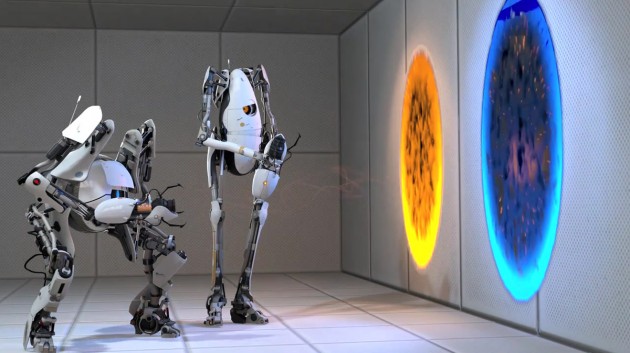
Portal 2 (2011)
Kate Jay: I don’t play well with others, especially when it comes to games. That said, Portal 2’s co-op missions are hands-down some of the best gaming moments I’ve ever had.
Let’s face it: Multiplayer games are designed to pick out the weaker players and exploit their crappy gaming skills (which is why I never play any Xbox Live or Wii games). Not so with Portal 2. These missions are co-op, as in, you have to work cooperatively to solve the puzzles. Of course, there are opportunities to explode your gaming partner, and many snarky GLaDOS commentary and giggling robot hijinks ensue. But the core of the missions stay true to the story: You play as Atlas and P-Body, two robots doomed to play out the sadistic whims of GLaDOS in a never-ending series of tests. The only way you’re going to make it out in one piece or get reassembled in the next level is by playing by her rules, which means sacrificing yourself for the greater good, aka SCIENCE.
Does the co-op experience add to the main storyline? Not really. Does it get repetitive once you’ve gone through the tests a few times? Sure. But Valve put some serious thought into how to fit a multiplayer experience into a universe where you’re the only living thing in a test-crazed facility, and they did it in one of the most irreverently and hilarious ways possible.
Runners-up: Rock Band (2007), LittleBigPlanet (2008)
Honorable Mention: Scott Pilgrim vs The World: The Game (2010)
Best Remake/Re-release of the Decade
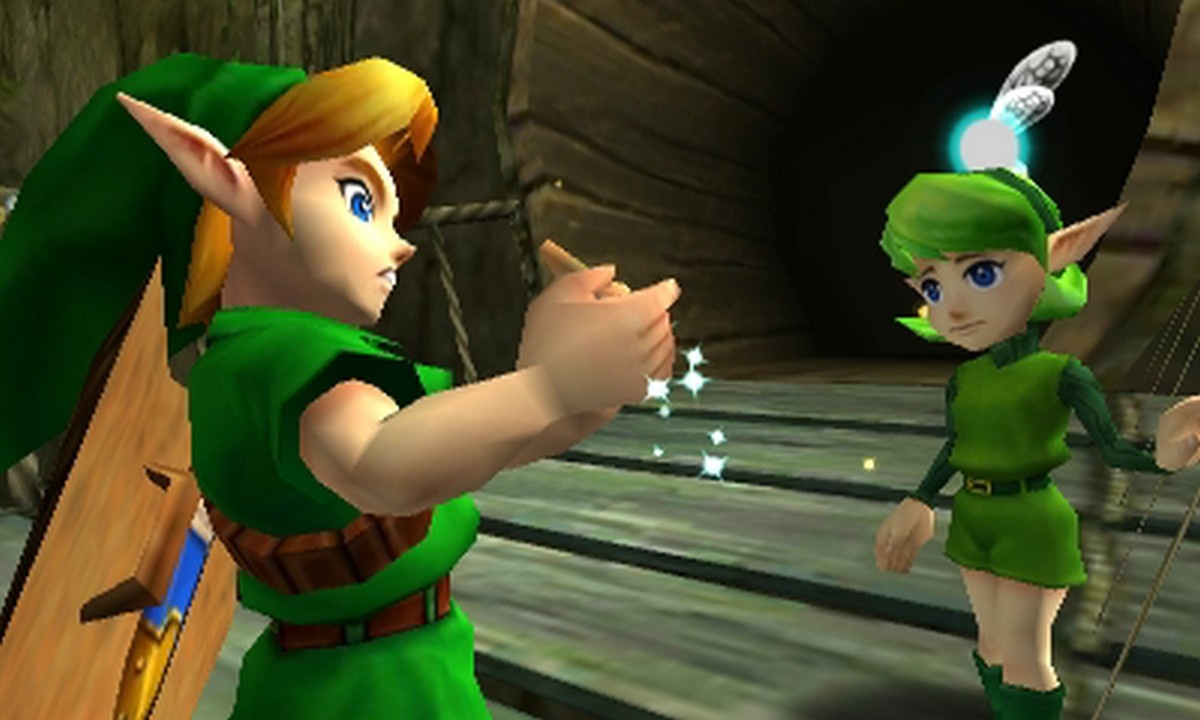
The Legend of Zelda: Ocarina of Time 3D (2011)
Matt Jonas: They were the best of times. They were the worst of times. They were the Ocarina of Time(s).
With Nintendo, it seems that cashing in on their most successful franchises is the key plan. Rather than invent something deliciously new, the overfiends at Nintendo HQ would much rather re-tell the story of a guy named Zelda and the legend of his journey.
However, if you’re going to retell one of Zelda the elf’s best stories, it would have to be Ocarina of Time. In this installment of the long-running franchise, Zelda has to save the world by defeating an evil pig called Agahnim. In what is widely considered to be the finest game in the series, Zelda is accompanied by a friendly wizard named Navi. He must travel across Hyrule searching for songs to learn on the magical Ocarina of Time. It’s kind of like Tomb Raider meets It’s A Wonderful Life.
In all seriousness though, Ocarina of Time 3D is a fine remake of the original and very deserving of your time and money. It may even go as far as to justify owning a Nintendo 3DS.
Runner-up: The Secret of Monkey Island: Special Edition (2009)
Honorable Mentions: Final Fantasy III (2006), Super Mario 64 DS (2004)
Best Character of All Time
A seagull from The Legend of Zelda: Wind Waker (2003)
Michael Gray: Ah, the seagull from Wind Waker. Clearly, it is the best character of the decade. Perhaps the best character of every decade, because there is no way anyone can top the majesticness of the character development put into this seagull. He is the epitome of–
Wait, hold on a second. I just got a call from GameCola HQ, saying we can’t let the seagull have an award. Really? Fine, let’s just re-run the awards speech for one of the boring characters no one cares about.
Best New Character of the Decade
GlaDOS from Portal (2007)
Paul Franzen (reprinted from 2007): GlaDOS: the disembodied computer voice that launched a million cake jokes. She leads you through the world of Portal—arguably the most entertaining game in Valve’s The Orange Box—and she’s apparently a lot cooler than “Female Pokémon Trainer,” the other big front-runner in this year’s voting. Congrats, GlaDOS!
[Note from 2013 Paul: I wrote this about four years before I ever actually played Portal. Can you tell?]
First runner-up: Sackboy from LittleBigPlanet (2008)
Second runner-up: Sheep Man from Mega Man 10 (2010)
Most Innovative of the Decade
Portal (2007)
Paul Franzen: A first-person shooter without any shooting; a bloodless, testosterone-less game with clever puzzles beyond just moving bodies or finding keycards. (By the way, has any game mechanic aged worse than having to find those stupid keycards? I don’t think I can play a 3D Realms game ever again.) Portal taught us to think in all the dimensions, and it showed us that first-person platforming doesn’t necessarily have to be the worst thing ever. (So add this to the list of games I can’t go back to: Turok.) It made us laugh before non-adventure games were allowed to do that, and it proved that even three-hour-long games can be considered Game of the Year. …It also made us all thinner, because we can’t even talk about cake anymore without someone making a stupid Portal joke.
Runners-up: LittleBigPlanet (2008), Scribblenauts (2009)
Most Disappointing of the Decade
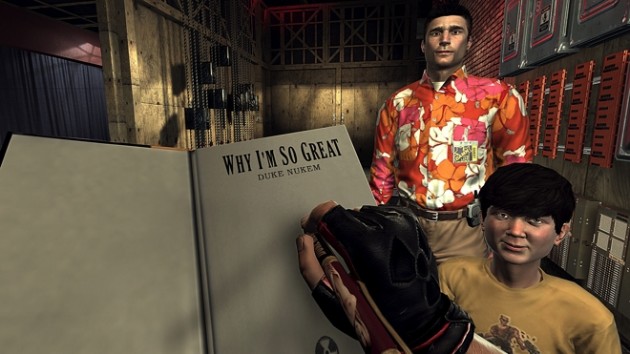
Duke Nukem Forever (2011)
Christian Porter: In 2011, a game was finally released. A game whose programming probably began on a Windows 95 machine, the same year Super Mario RPG was released. Duke Nukem Forever.
For 15 long years the game lived mainly in shadows, until around 2010 when news that Gearbox bought the franchise surfaced. Fans were still skeptical, but more and more information came out. Then a release date. Then the release. And then we played it. Clunky gameplay, awful graphics, cringe-inducing jokes. That’s when we all remembered that the Duke Nukem-shaped void in the gaming world has long since been filled by far superior applicants.
Duke is a relic from a time when games were still primarily marketed to kids. Adults and teenagers were so starved to have something targeting them that once a one-dimensional alpha male who swears and patronizes the local nudie bars came out, we ate it up. Sex, violence, vulgarity—they’re no strangers to games these days. A world where you can control Kratos in God of War and graphically eviscerate an army of enemies—all without stopping the threesome you were right in the middle of—makes a man who shoots aliens while reading through the Wikiquote page for Army of Darkness for the hundredth time look incredibly bland in comparison.
Duke Nukem Forever did the only thing that could have hurt Duke—it removed him from the time when he was king, that sanctuary of nostalgia, and exposed him to the cruel light of reality, revealing a cold hard fact to the world: Duke sucks. And he always has.
Runner-up: Metroid: Other M (2010)
Honorable Mentions: Enter the Matrix (2003), Teenage Mutant Ninja Turtles: Turtles in Time Re-Shelled (2009)
Best Sixth-Gen Console
The PlayStation 2
Paul Franzen: It’s hard to argue with the PS2’s longevity. It outlasted the original Xbox, which was Microsoft’s premier system for only four years, and the GameCube, which was around for six. It also bested the Sega Dreamcast, which was around for—what, a couple of weeks? Maybe three.
When did Sony stop manufacturing PlayStation 2s? Oh, that’s right—last Sunday.
It’s also sold twice as many units as all of the aforementioned systems. Combined.
Everyone had a PlayStation 2. Everyone. It was the home of series like Final Fantasy, Kingdom Hearts, and Katamari Damacy in an era when everything wasn’t just released for everything, and it helped revolutionize online console play, in that it had online console play. Sure, there might have only been a few games that used it—one of them being, I swear, a game called Trivial Pursuit: Unhinged—but it helped carry the ball that Xbox Live eventually stole and then scored a million touchdowns with. In short, the PlayStation 2 is the best-selling, most popular videogame console of all time, and if you’ve never owned one, you’re that guy. Now go sit in the corner until you play Okage, that guy.
Runner-up: Sega Dreamcast
Best Seventh-Gen Console
The Xbox 360
Matt Jonas: I’d like to make it perfectly clear first and foremost that this is one of the closest fought console generations to date. Each system has its merits, and in a different light any of these three major systems could be considered a winner.
The Xbox 360 was built from the ground up to be an “Internet” console, and it was also the first console of the seventh generation to be released. A constantly updated store allows you to peruse and download more games, and there isn’t the need to install every physical game to your hard drive or play them in standard definition, like certain other seventh generation consoles. The introduction of indie-developed game support was a stab at the PlayStation 3 after it removed the OtherOS compatibility. Achievements keep players coming back, and are an idea so good that Sony felt the need to copy them. The occasional free game and worthwhile discount solidified the place of the Xbox 360 in my heart, as did the fine exclusives for the Xbox Live Arcade, such as Shadow Complex, Fez and Spelunky.
But this is close fought indeed, as it hasn’t all been plaid hubcaps and glory for the Xbox 360. Who can forget the spate of consoles spontaneously combusting? I knew the built-in GPU was hot stuff, but I didn’t expect my Xbox 360 to blow up. Three red rings of death cost Microsoft a lot of consumer faith and respect, but it was soon grown back by top-quality service and free repairs for all three-red-ringed consoles with an untouched security seal.
Best Handheld Device
The Nintendo DS
Elizabeth “Lizo” Medina-Gray: Nintendo tends to be pretty good at the whole innovation thing, and the DS (released all the way back in 2004) is no exception. Look! It’s a game system with two screens! And you can poke at one of them! The DS hasn’t just been about innovation, though—it’s had some really great games, too; think Phoenix Wright, Professor Layton, and of course Drama Queens, just to name a few. And even though Paul and I now have a PSP and a 3DS in our household, my classic red DS-fat remains my go-to portable console.
Runner-up: Apple iPhone/iPad
Best New Series of the Decade
#1: Phoenix Wright: Ace Attorney
Paul Franzen: When we started GameCola back in 2002, there was no such thing as Phoenix Wright (at least, not in the U.S.). To the modern-day GameCola reader, that probably sounds like a temporal impossibility; we’d might as well say there was a time before the Internet, or before Curiosity: what’s inside the cube?. But for three long years, we had to make do with…I don’t even remember what we wrote about back then. Maybe pudding?
Thankfully, Phoenix Wright came along in 2007, captured all our hearts, and gave us endless philosophical ideologies to debate, although nearly all of them came down to “who should hook up with who?” It was a comedic adventure game during that weird time when nobody was making any, and a story-driven DS game back before the DS was really a thing. To me, when I picked up Phoenix Wright at GameStop that fateful day, it was just “that weird lawyer game”; now, it’s the only game. …Well, except for Curiosity: what’s inside the cube? I really need to get back to tapping; excuse me.
#2: Assassin’s Creed
Daniel Castro: This last decade saw the birth of Assassin’s Creed, which went from relative obscurity to Ubisoft’s best seller. Its success can be attributed to the game’s formula, which basically has something for everyone; you’d have to be from a very specific niche audience if you didn’t fall for any of its features.
The game’s main appeal is its setting. Desmond Miles’ plot aside, the whole point of each game is to take you to bigger-than-ever depictions of historical places for you to explore and wonder at, and the way you enjoy these games is (mostly) up to you. You can walk around the cities or jump across rooftops in order to reach your destination. You can also choose to silently take down your targets, or fight your enemies head-on if that’s the way you want to deal with them; the game is made to work either way.
While the Assassin’s Creed franchise has gained some flak since it was annualized, it’s difficult to universally hate it because–in one way or another–each iteration has delivered the right amount of what we were expecting (new cities and time periods to explore), while experimenting with new things that keep the series from getting stale (horse riding, recruiting assassins for your command, and the best Pirates of the Caribbean simulator ever!)
#3: Kingdom Hearts
Kate Jay: Ten years ago, there were rumors of Disney working with Squaresoft (now Square-Enix) to create what they said would be a revolutionary title for the gaming industry. A lot of people figured it would be geared toward kids, and that most of the emphasis would be put on saccharine adventures with beloved childhood characters set in familiar (and more importantly, marketable) franchises. That hardcore gamers would give it a try, only to become disgusted with how simplistic, easy, and vapid the title would be. And that it would be this weird one-time experiment that would probably end up on a top ten list of games of shame somewhere.
Fortunately, these people were (mostly) wrong.
Yes, you explore areas populated by Disney characters, but they stand beside Square characters with an equally strong (albeit slightly older) fanbase. And yes, you visit places that undoubtedly helped Disney’s profit margins when they were able to repackage merchandise to a new following of fans. But the various installments of the Kingdom Hearts series (all…egads, I think there are eight of them now) have proven deep and engaging, weaving together a storyline so dense it’s almost convoluted. Fortunately, the strong fanbase documents and dissects the events into a more readable timeline so that you can always figure out what’s going on. Some of the games are better than others, of course, but that’s to be expected in a series that continues to try new things with each installment, and generally succeeds. But this is a series that matures along with its fans, so I think we can expect to see some pretty intense KH titles in the near future. Maybe they’ll even release KH3 some day.
Game of the Decade
Portal 2 (2011)
Michael Ridgaway (reprinted from 2011): Man, what was it with 2011 and awesome storytelling?
Portal 2 refined and added a lot to the platformer/puzzle elements from the first game for yet another amazing quantum-tunneling exploratory experience, but where it really shined was the story. In addition to the ever delightful GLaDOS, players were introduced to Wheatley and Cave Johnson, voiced by professional actors Stephen Merchant and J.K. Simmons, respectively. I’m not sure I ever stopped laughing while playing the game, and it very squarely fell into the category of “games I can only play with Vangie around or she will straight up cut me.”
Portal 2 proved that it was possible to tell an exciting, entertaining story in the context of an excellent game, and it raised the bar not just for videogames, but all other forms of media, as well.
Runner-up: LittleBigPlanet (2008), Kingdom Hearts (2002)
Honorable Mentions: Bioshock (2007), The Legend of Zelda: Wind Waker (2003)

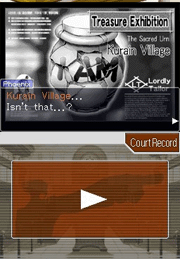
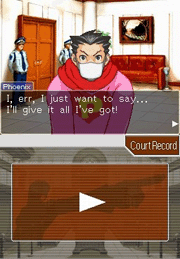
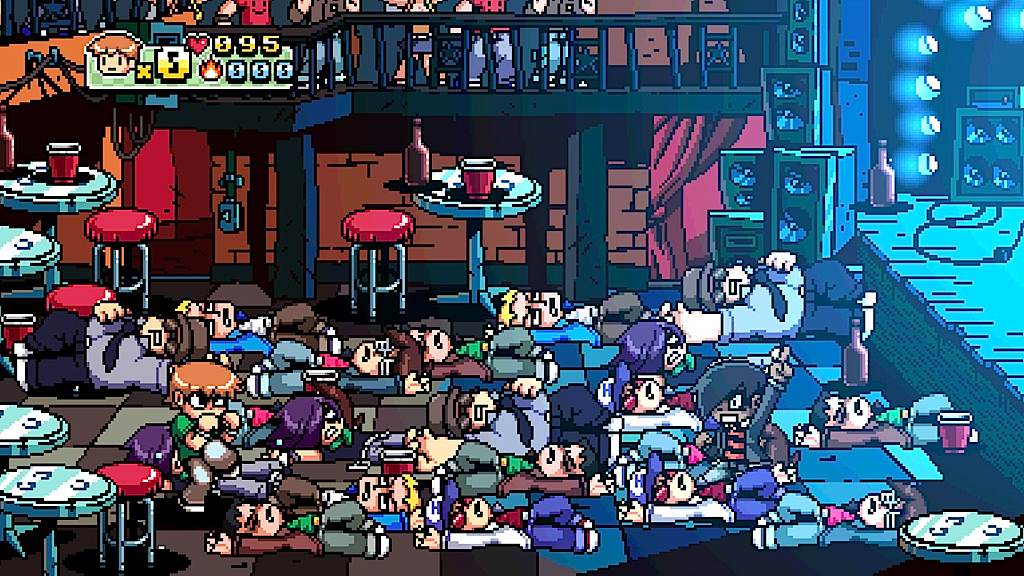
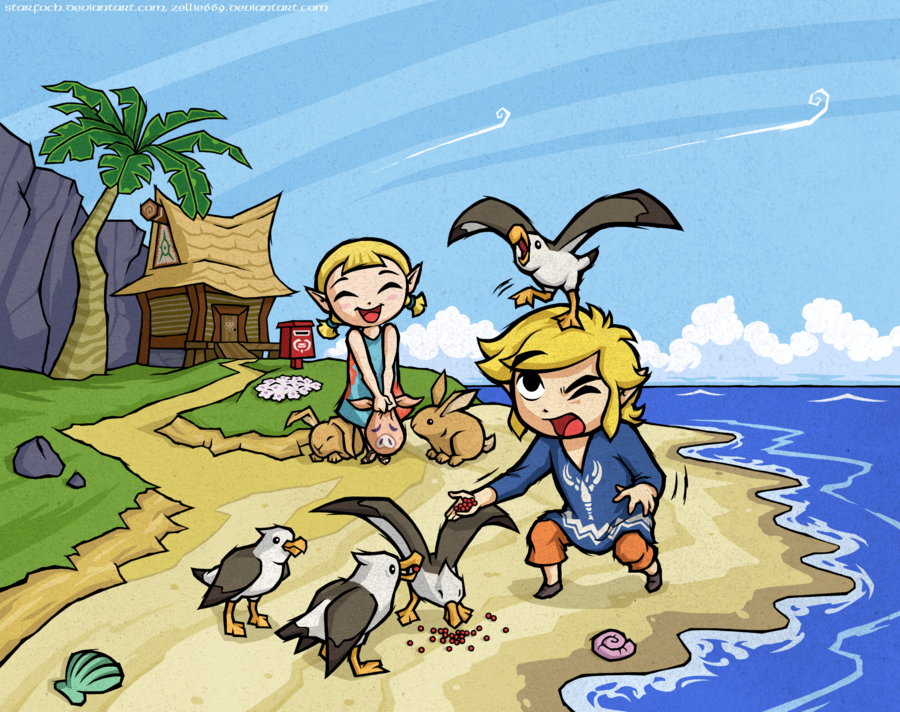

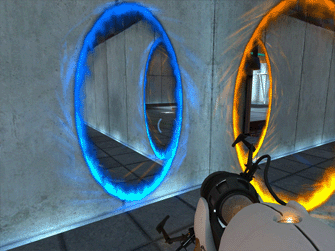
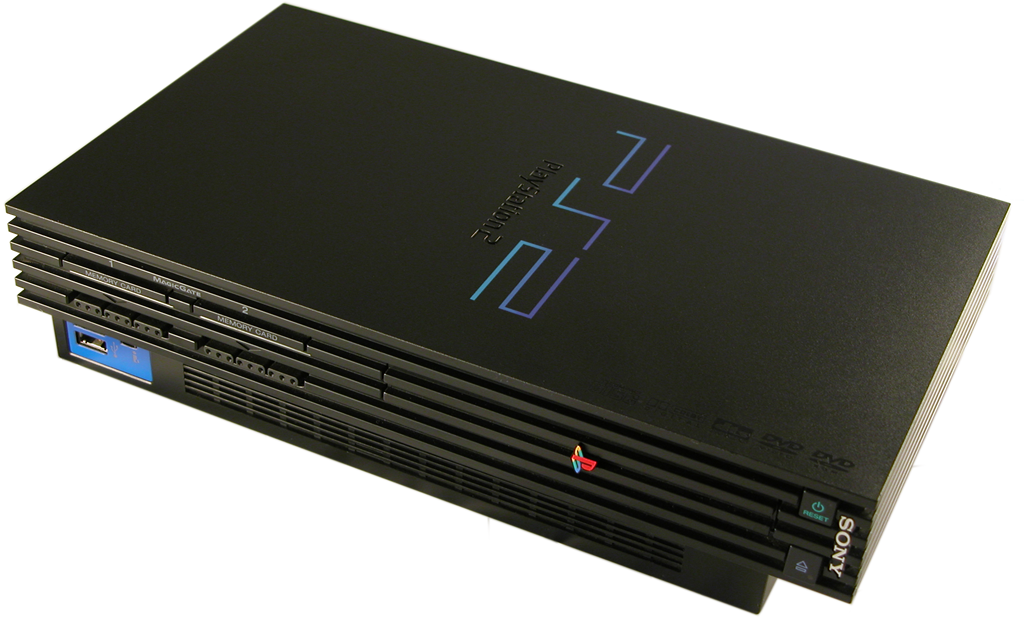


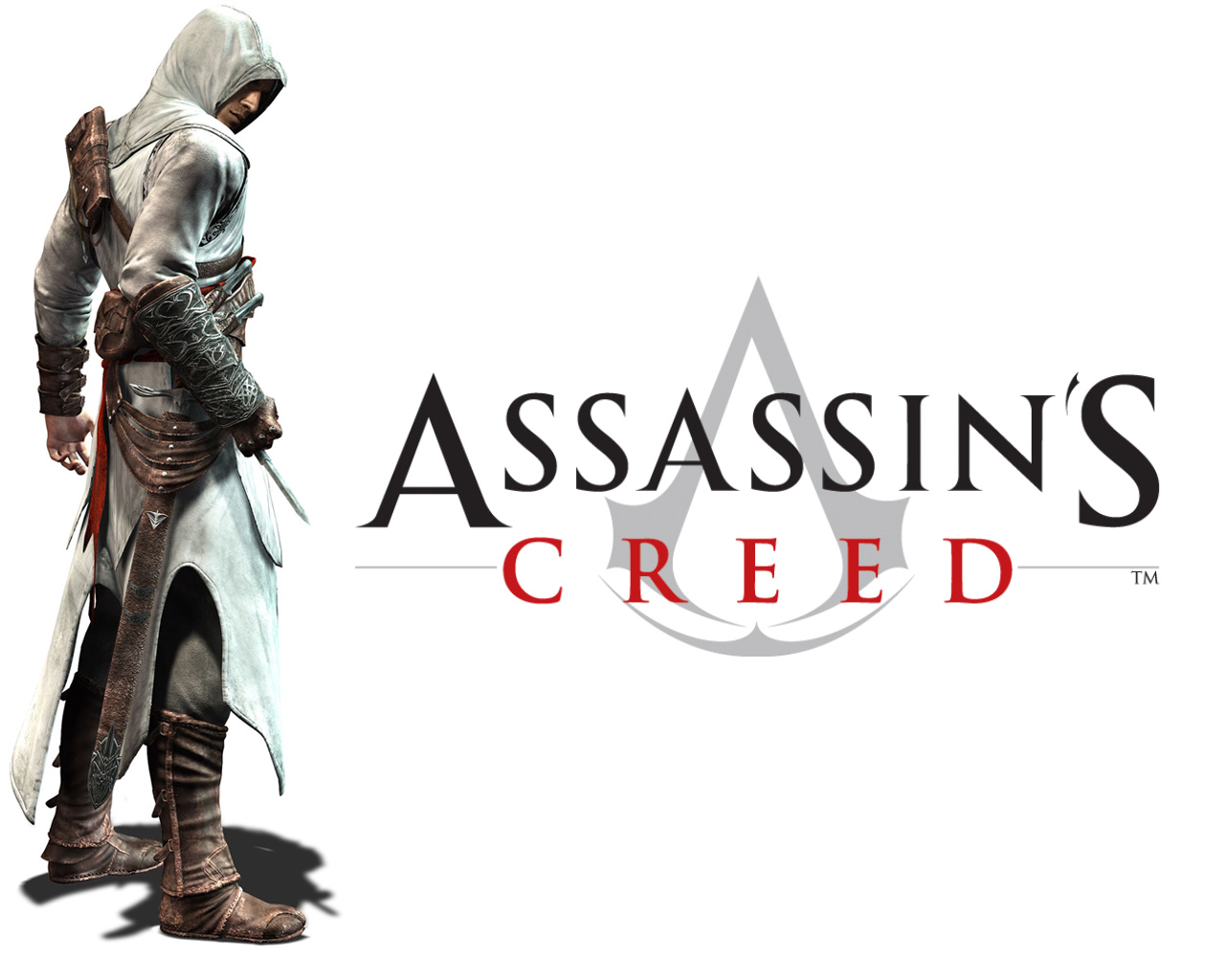
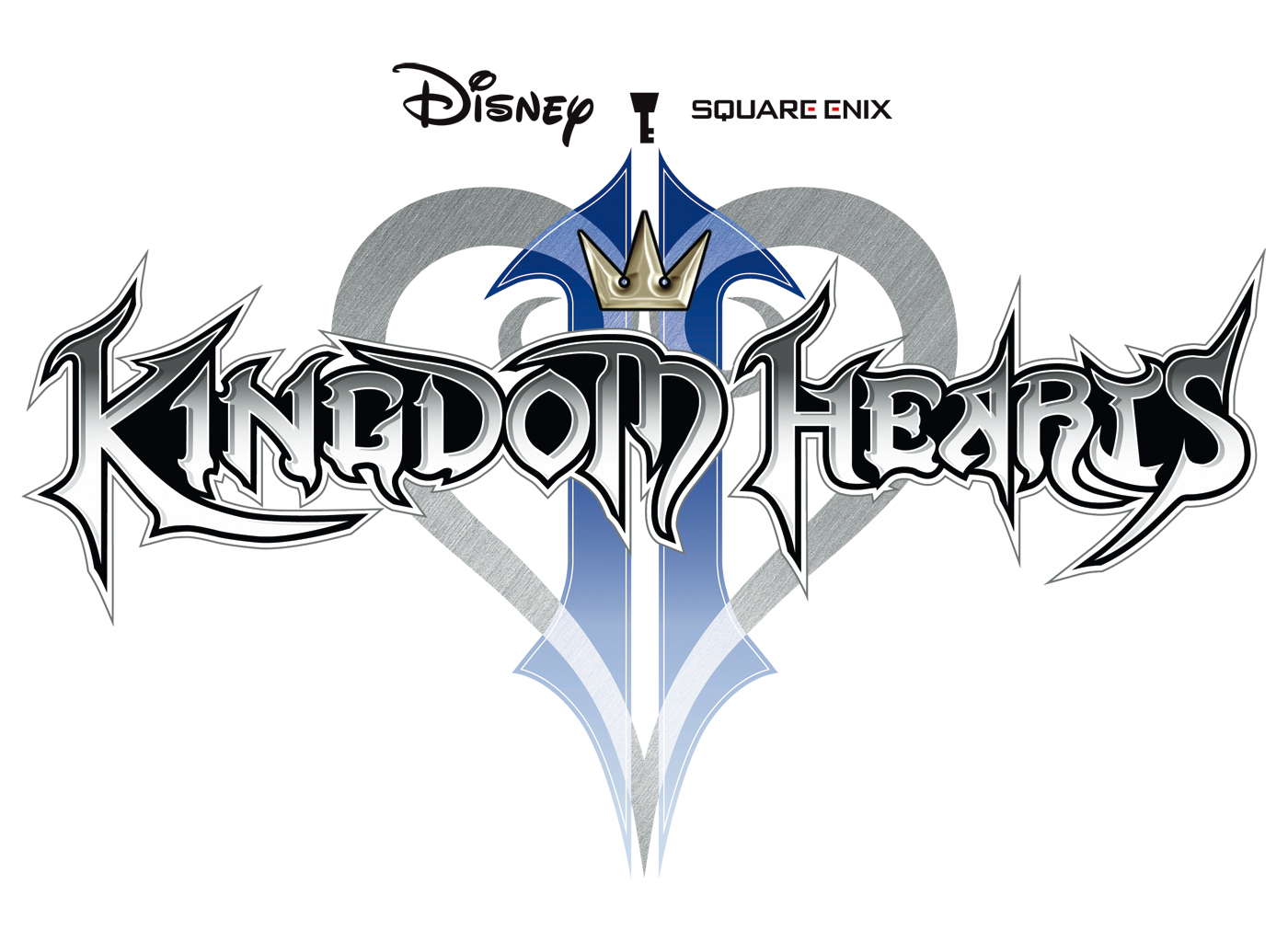
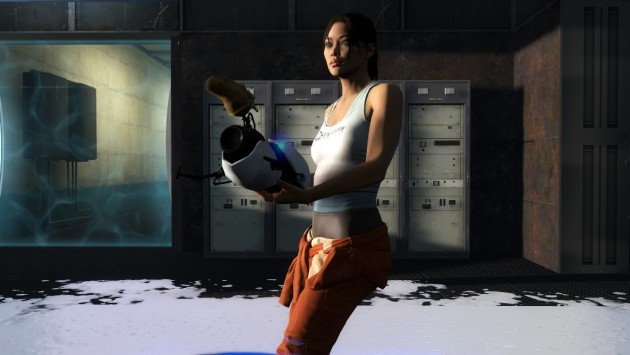
Paul, I hate to sound like a downer, but I don’t think the comment on the PS2 selling twice the amount of everything else combined is true… All research I’ve done says that the PS2 sold around 154 million units, which *is* the greatest amount, and more than the PS3 and 360 combined… but the Wii sold around 90 million copies and the DS sold… 153 million copies. It still wins in longevity though and was certainly the powerhouse throughout this last 10 years, I’ll give you that certainly. Unless I am completely misinterpreting/reading your comment.
Also, great list! We’ve got some great games here and a nice bit variety. Looking forward to the Yearly Awards too!
I think I can explain!
“It’s also sold twice as many units as all of the aforementioned systems. Combined.”
I was only talking about the other consoles from the sixth gen–so, Dreamcast, GameCube, and Xbox 1.
Ah! Okay. That makes way more sense. I knew I must have been reading that wrong, I just thought you meant more than *everything* mentioned before, not just in that last bit. Sorry for the confusion.
Though I do want to go on the record and say that the DS may outsell the PS2 before it finishes running its course. It’s only about 1 million behind and while that may seem like a big number, on the scale of console sales it’s really close.
The Dreamcast was ROBBED!
Yes it was 🙁
This would not have been GameCola without Phoenix Wright winning something 😉
Portal, portal everywhere!